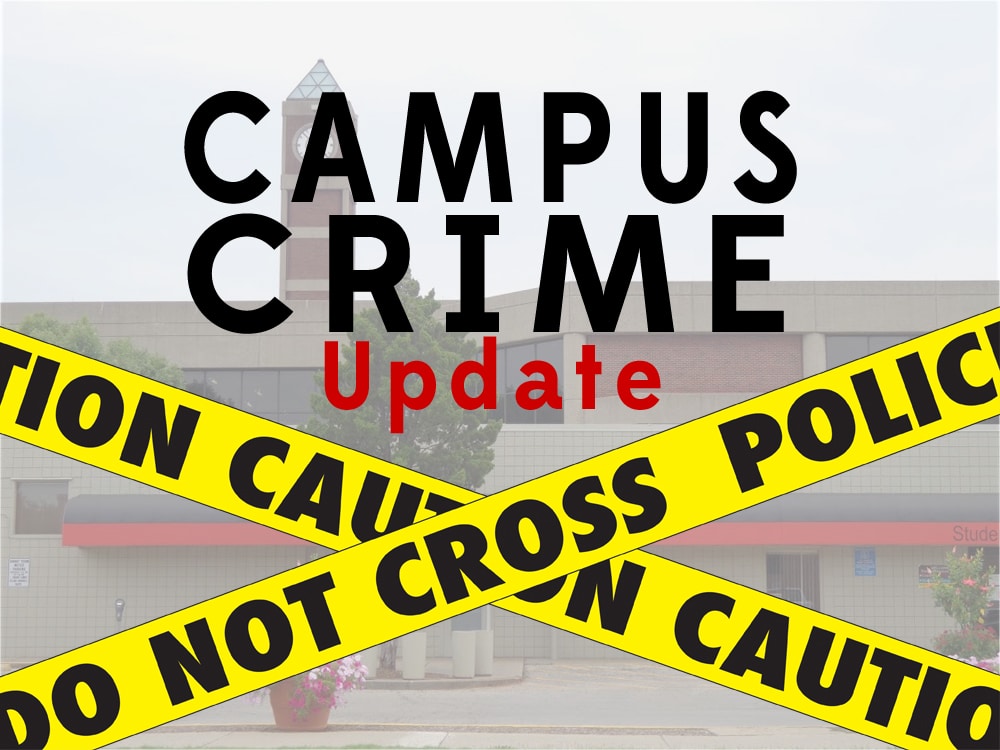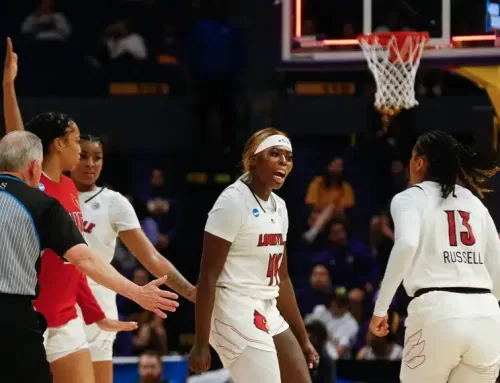Three weeks ago, U of L announced increased security after a crime wave on and around campus. Multiple robberies and a non-fatal stabbing were reported, but sexual crimes were not.
According to ULPD crime reports, no sexual crimes have been reported on campus since November 2013, making 2014 the first year since 2010 to have zero reported sexual crimes on campus.
“This has been a very good start to school without a report of sexual assault,” said U of L Assistant Chief of Police Kenny Brown. “That does not mean there has not been any, it just means we have not had any reported, but that is still good.”
Since 2007, the earliest year available for ULPD’s online crime reports, 18 sexual crimes were reported to ULPD.
Compared to other schools, U of L’s figures are low. “The Washington Post” published federal crime data from universities in the US, showing sexual crime reports from 2010 to 2012. Rutgers University led the list with 84 crimes from 2010 to 2012. U of L had five.
Sally Evans, interim director of PEACC, thinks she may know why the number is so low: people are not reporting them.
“We have sexual assaults, unfortunately, in 2014,” said Evans. “I do not know if that means when the individual chose to report it to university police, because people do not often want to do that.”
Through her work with PEACC, an office that works to end and prevent personal violence, Evans often works with victims of sexual crimes. She said few want to report the incident.
“People almost always know who this is,” said Evans. “If it were someone that jumped out at them and hurt them and they did not know them, people almost always call the police and they get someone involved right away.
“When they know them, there are just so many other factors involved. Maybe this is someone that is in a peer group that they want to keep an alliance with, they do not want to alienate that organization or that group.”
Evans believes a similar mindset also is the reason that out of the five closed reports since 2007, all victims declined prosecution.
“Believe it or not, one of the top things I hear is, “I do not want to get them in trouble, I just want them to admit that what they did was wrong,’” said Evans. “Very frequently, someone in this position would like to see remorse. I think, for a lot of people, it is just very helpful to have that person admit wrong-doing. That goes a long way towards healing and some reconciliation.”
“That is strictly a victim’s choice,” said Brown deciding to prosecute. “Sometimes they just do not feel like they want to go forward. Sometimes it takes them a while to make up their mind. They may not prosecute right away, they may wait a little bit.”
U of L’s sexual misconduct policy recommends prompt reporting, suggesting within 180 days of the incident.
The policy outlines the process taken by victims during university investigations. For students, there are two options for reporting a sexual crime: administrative or criminal.
“They may choose not to go criminal, but they may choose to go administrative if they know who the person is,” said Brown. “If that is the case, especially if it is another student, the dean of students can move in and do what they need to do based on policies of the university. If they come to us, and wish to prosecute, that is when we would get involved.”
“It is the person’s choice to move forward, unless, if it was an extreme situation, that we have reason to think this person is a continued danger, they may have to move forward with repercussions, even if the victim is not fully on board,” said Evans. “At times, the responsibilities of the university could outweigh the individual’s preferences.”
Evans thinks the stigmatization of police may also play a role in decreasing the number of reports.
“We have a wonderful university police department here, we truly do,” said Evans. “But no matter how good they are, some people still have some resistance to those who are institutionalized. They just come with some other associations sometimes, and students are hesitant to be like, ‘I want to call my local campus police.’”
ULPD reports only show crimes that were reported on campus or in affiliated housing, which can decrease the number of reports that come through them instead of LMPD.
“A lot of times, we may have a student come forward where the sexual assault happened off campus but may come and report to us,” said Brown. “At that time, we would give that information back to LMPD, make sure the victim is taken care of, make sure any evidence is protected and work that case or give that case to LMPD if it falls in their jurisdiction and then their sexual assault unit would take over. And that has happened quite a lot.”
PEACC’s work on campus may also help decrease the number of possible reports.
“The university pushes education quite heavily in speaking to various students, trying to alert people on how to protect themselves, what to do trying to educate people on ‘no means no,’ and I think the university does do a good job of that,” said Brown. “I think that does help in the overall picture.”
Evans teaches students about the GreenDot program, which focuses on the bystander’s power to prevent sexual assault.
“People are complacent in these things. They know about them most of the time,” said Evans. “We see these things but we do not always know how to respond.
“I think that’s a pretty hopeful note to end on. We do not just wait till something happens here, we prevent it.”





